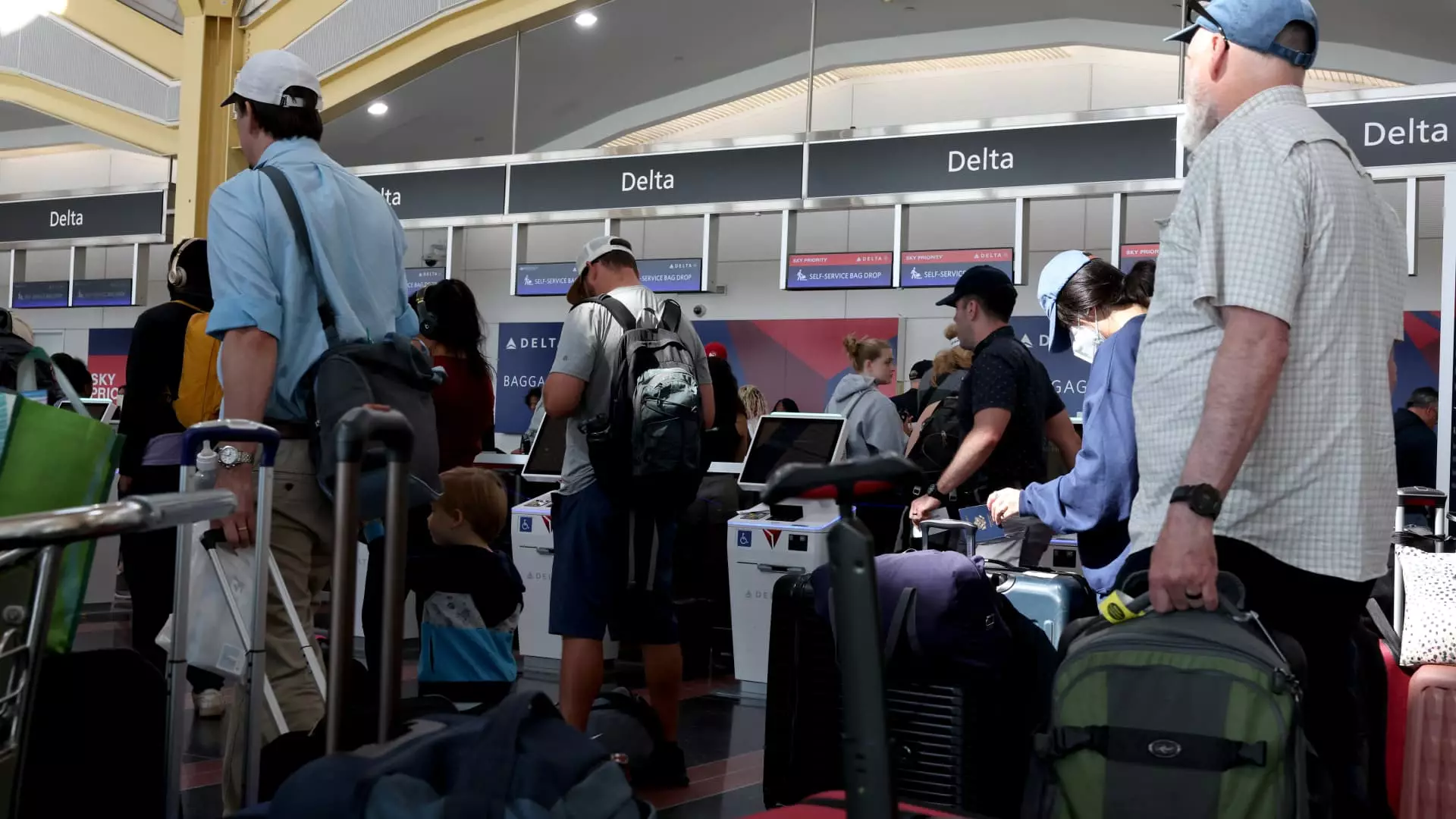On Friday morning, major airlines such as United, Delta, and American Airlines made the decision to ground flights due to a global IT outage that was affecting their operations. This unforeseen event caused significant disruptions for travelers, leading to delays and confusion at airports worldwide. Eric Napoli, the chief legal officer at AirHelp, expressed the chaos that was unfolding, highlighting the bottleneck effect on numerous flights. The mass grounding of flights had a ripple effect, impacting passengers and raising questions about compensation and passenger rights.
In the aftermath of the IT outage, passengers affected by flight disruptions were left wondering about their entitlement to refunds, hotel accommodations, meal vouchers, or other forms of remuneration. However, the situation was complicated by the fact that the extent of compensation largely depended on individual airline policies. Travel experts emphasized the grey area that passengers found themselves in, being at the mercy of each airline’s specific guidelines and terms regarding passenger rights and financial compensation.
Customer Entitlements Amidst Flight Cancellations
The U.S. Department of Transportation outlined certain guarantees regarding passenger entitlements in cases of flight cancellations. According to the department, customers are owed a refund of the ticket price, including fees, if an airline cancels their flight, irrespective of the reason, and they choose not to fly on an alternate flight. This particular regulation extends to non-refundable tickets as well, ensuring that passengers receive a cash refund if they decide not to proceed with rebooking or use flight vouchers.
The Department of Transportation also addressed the issue of “significant” schedule changes or delays, stating that passengers were entitled to refunds should they opt not to fly due to such disruptions. However, the precise definition of what constitutes a “significant” change was left open to interpretation, taking into account various factors such as the duration of the delay and specific circumstances surrounding the flight disruption.
New Biden Administration Rule and Automatic Refunds
Beginning October 28, airlines are expected to promptly and automatically provide refunds to customers as per a new rule issued by the Biden administration in April. This regulation will help streamline the refund process for passengers in cases of substantial itinerary changes or extended delays. Despite this positive development, customers affected by the recent IT outage faced challenges in claiming refunds as the rule was not yet in effect. Many passengers had to navigate through complex procedures with airlines, especially those who had booked tickets via third-party platforms rather than directly with the airline.
The unique nature of the outage due to the global IT disruption raised questions about customer expectations and airline responsibilities. While some passengers were entitled to refunds and compensation based on specific airline policies, there were no federal guarantees to protect travelers in such circumstances. Airlines promised to rebook passengers on the next available flight for free, with some offering additional amenities like meals and hotel stays for extended delays or cancellations.
Airlines were expected to adhere to specific promises outlined by the Transportation Department in cases of controllable flight cancellations or delays caused by internal factors like maintenance issues or crew problems. However, compensation for uncontrollable events such as adverse weather conditions was harder to attain for passengers. The debate among experts regarding whether the IT outage fell within airlines’ control highlighted the complexities surrounding passenger rights and airline accountability in such scenarios.
Advice for Passengers Affected by Flight Disruptions
Passengers were advised to keep receipts for any unexpected costs incurred during delays or cancellations, including expenses for lodging and meals. These receipts would serve as valuable proof when filing claims with airlines or travel insurers for reimbursement. Despite the challenges posed by the recent IT outage, passengers were reminded to stay informed about their rights and potential compensation options, emphasizing the importance of documentation and proactive communication with airlines.

